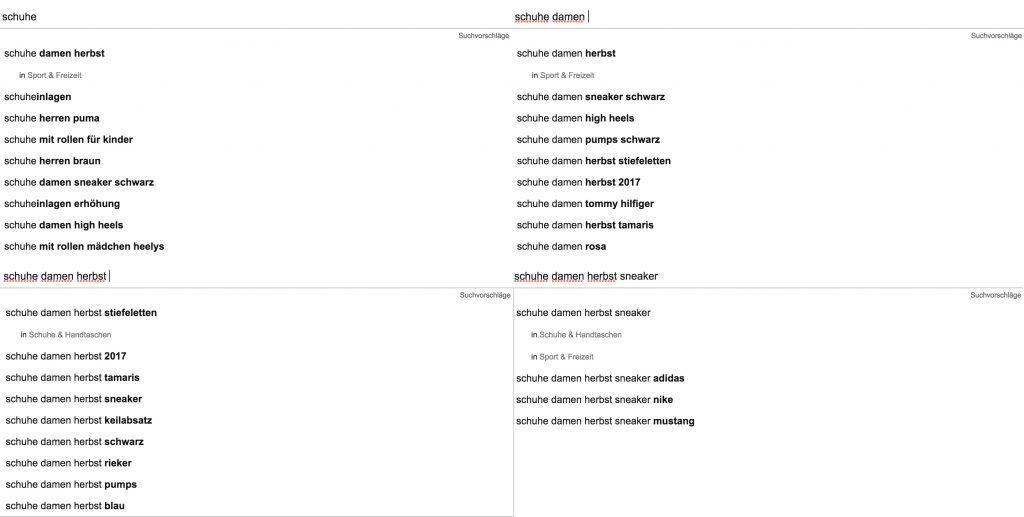What is a long tail keyword?
The term long tail keyword is defined as follows:
In online marketing, the long tail refers to the less frequently used search terms that lead users from search engines to a website or online store. In total, however, these search queries can generate more visitors than a few high-demand terms.
Long tail keywords are searched for less frequently than major keywords (main keywords), also known as short tail keywords – but the search query is more precise and better defined.
Long-tail keywords play a particularly important role in the creation of PPC campaigns on Amazon. The more targeted search queries increase the likelihood that customers will find a suitable solution to their specific problem.
Amazon Longtail Keyword Research
Amazon keyword research is about mapping users’ search queries as accurately as possible. Compared to major keywords, long-tail keywords have significantly fewer views and impressions, but can be very relevant for Amazon Advertising (formerly Amazon Marketing Services) in their entirety.
Another advantage of using long-tail keywords is that the average minimum bid is often lower than for the few highly competitive main keywords.

Many sellers and vendors only concentrate on a few short-tail keywords and neglect the long-tail keywords. As a result, competition for the main keywords is particularly high and fiercely contested. This leads to higher click prices and lower margins for a small group of search terms.
There is significantly less competition for long-tail keywords than for the few main keywords. Amazon’s autosuggest function, for example, can be used for basic keyword research (see image).

Amazon automatically creates suggestions for search terms based on the user behavior of customers. The search queries can be several levels deep – as in the example up to the fourth level. The generic term “shoes” leaves many options open, e.g. shoes for women, children or men. Competition for the keyword “shoes” is very high, as this term covers many search queries.
However, if you use a more specific keyword such as “shoes women fall sneakers”, the target group and search intention is much more clearly defined. Although this type of keyword generates significantly fewer impressions than “shoes”, it is much more relevant to the actual search query.
When creating Amazon Advertising campaigns with long-tail keywords, we recommend using the match types “exact” or “phrase” in order to target the search queries more precisely.